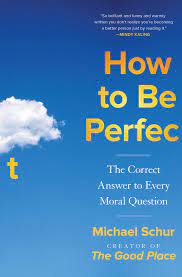If the last few years have taught us anything, it is that life is complicated and challenging in many ways. Most days, I'm exhausted. Are you exhausted?
During the early part of 2022, though, I had the chance to read three books that really helped me frame my frustration, angst, and anxiety about the world.
All of these books are recently published, based on solid research, and approach their subjects in a way that makes them understandable and relatable to everyone. If you read even one of these books, I guarantee that you will learn things, gain perspective about the world, and discover insights about yourself and your humanity. Each book also touches on the role the COVID-19 pandemic has had on our lives and on our society so they are certainly timely.I will share my individual reviews for each book that I published on my Goodreads profile. If you have read any of these books recently, would love to hear your thoughts as well!
Atlas of the Heart by Brene Brown
This was such a powerful read. Brown pulls information from both her own research and other scientists to completely study the way we talk about and understand human emotions. She creates a literal atlas of our feelings, helping us understand what it means to feel more than just happy, sad, and mad but diving deep into concepts such as grief, shame, joy, hubris, schadenfreude, and humility. By understanding more about our feelings, Brown equips us to better understand ourselves, our relationships, and the way we frame everyday situations in our lives. I loved the solid research base of her work combined with the easy way she explains many challenging concepts. Her examples and many of the quotes she shares from other researchers were powerful and compelling. I did not realize until reading this that she is a grounded theory researcher (but it totally makes sense!). Loved hearing her thoughts embedded in many of the chapters on rigor in research and how research helps us understand the world better.
Think Again by Adam Grant
Grant provides a digestible primer on critical thinking. His examples are timely and relatable to anyone, whether they are thinking about business applications or how we make decisions in our own personal lives. In a world where we are constantly bombarded with "I'm right, you're wrong" ideologies, Grant provides excellent food for thought. I do think some of his statements are a bit over-generalized (example: I think he slightly overstates the value of meta-analysis; meta-analyses are great for looking at things from a scientific perspective, but all research has flaws. We shouldn't just take for granted the information derived from a meta-analysis simply because the researchers looked at many, many studies). However, Grant does a great job explaining how systems thinking can be applicable to everyone's lives and how "thinking like a scientist" can give you credibility in life and work.
How to be Perfect by Michael Schur
Do you have an advanced degree in moral philosophy? Do you have endless hours to spend reading heavy tomes by Kant, Aristotle, Scanlon, Camus, and others? If the answer to either of these questions is a resounding, "NO!", you need to read (or listen to) this book.
Schur created and wrote The Good Place, a comedy that explores ideas of what it means to be a good person, live a good life, and how we might be rewarded (or note) for the life we live after we die. The show is smart, funny, and has one of the best ensembles in comedy tv in recent memory. This book is the perfect companion to the show. Schur discusses many aspects of moral philosophy with relatable examples and thoughts that we can apply to our daily lives. He explores the true complexity of the thousands of choices we make every day: What should we do with our money? Am I a good person if I make a few bad choices? What does it mean to truly love and care about each other as a society? Do I need to return my grocery cart to the store?
I think what I appreciate more than anything from this book is the understanding that life is extremely complicated and the best things we can do is 1) be nice to each other as much as we can and 2) give ourselves a break because life is complicated and moral exhaustion is real.
What inspires you these days?



